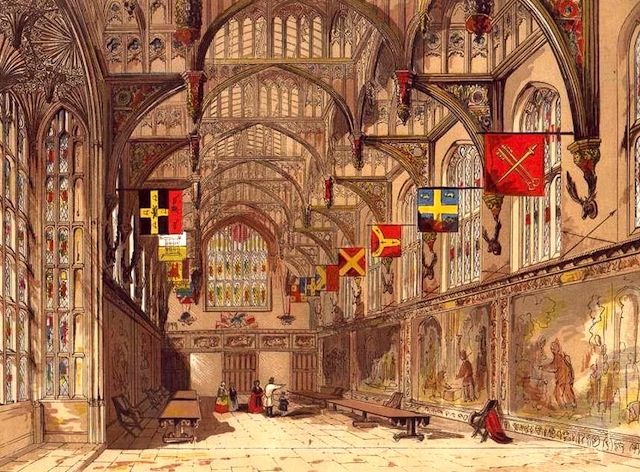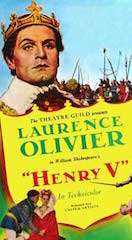
| |
Director: Laurence Olivier, 1944
During the Second World War, when Britain stood alone, ravaged by air raids and fearing a German invasion, Sir Laurence Olivier delivered the famous St. Crispin's Day speech from Shakespeare's Henry V during a radio program to boost British morale. The Prime Minister, Winston Churchill, found the broadcast so inspiring that he asked Olivier to produce the play as a film for a mass audience. Olivier's adaptation of Henry V, which he directed and stars in, is widely considered the first Shakespeare film to be both artistically and commercially successful. © Criterion
|
|
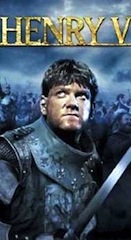
| |
Director: Kenneth Branagh, 1989
Kenneth Branagh's brilliant film adaptation of Shakespeare's play retells the tale of the Lancastrian
English king who led an army into France during the Hundred Years War. Along the way,
young king Hal must struggle with the sinking morale of his troops and his own inner
doubts. The film culminates at the bloody Battle of Agincourt in 1415. Considered by
some to be the best ever screen adaptation of Shakespeare, though the 1944 Olivier version remains the most famous.
© MGM/UA
|
|
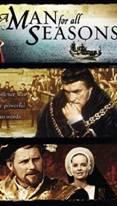
| |
Director: Fred Zinnemann, 1966
A screen version of the 1960 play by Robert Bolt. Henry VIII seeks a divorce from his wife
Catherine against the wishes of the Church and thus needs the support of the English
legal establishment and members of his own court. Sir Thomas More, Henry’s Lord
Chancellor and friend, must choose between compromising his principles or risking his
life by defying the king's wishes. Brilliantly written and acted, this film won six
Academy Awards and is considered by many to be among the greatest films ever. Sir Paul Scofield stars as More. © Sony Pictures
|
|
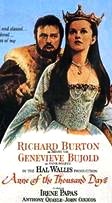
| |
Director: Charles Jarrott, 1969
Henry VIII is desperate to sire a male heir and preserve the Tudor
succession. The well known events of the "King's Great Matter" are vividly presented as
Henry seeks to rid himself of his first wife Catherine and marry young Anne Boleyn.
The resulting political and religious crisis changed England forever. Compelling
performances given of key characters, especially Henry played by the legendary Welsh actor Sir Richard Burton. Based on the 1948 play by Maxwell Anderson.
© MCA Home Video
|
|
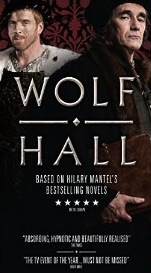
| |
Director: Peter Kosminsky, 2015
From the perspective of Thomas Cromwell, chief minister to Henry VIII, this series follows
the complex machinations and back room dealings of the Henrician court. Cromwell, a pragmatic
and talented power broker who rose from humble beginnings and with an enigmatic past, struggled
to serve his king while dealing with deadly political intrigue, Henry’s tempestuous love life,
and the religious upheavals of the English Reformation. A revision of earlier film portrayals
of Cromwell as a one-dimensional villain. Based on the 2009 novel by Hilary Mantel.
© BBC TV
|
|
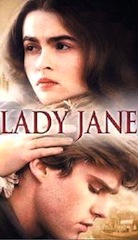
| |
Director: Trevor Nunn, 1986
The death of Henry VIII in 1547 plunges his kingdom into a chaotic succession dispute
that is exacerbated when his sickly son Edward VI is on his deathbed six years later.
Anxious to keep England Protestant, Edward's scheming minister Northumberland marries
off his son to teen-aged Lady Jane Grey, who he places on the throne after Edward dies.
Despite numerous liberties taken with historical fact, this film offers a riveting
portrayal of Tudor politics and the manipulation of royal figures.
© Paramount
|
|
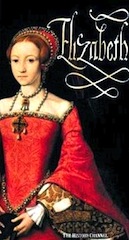
| |
Narrator: David Starkey, 2002
This docudrama was produced as a miniseries for British television and written and
narrated by David Starkey, a Cambridge historian and noted biographer of Elizabeth I.
It offers an entertaining and insightful blend of dramatic re-creations and incisive
commentary on the queen’s private life and historical legacy. It is vastly superior to
the feature films Elizabeth (1998) and The Golden Age (2007) which, though more
lavish and dramatic, are filled with historical fabrications.
© A&E Home Entertainment
|
|
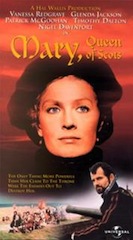
| |
Director: Charles Jarrott, 1971
A thoughtful period epic, though like many films about Tudor and Stuart royalty it
often strays from historical accuracy in favor of dramatic effect. Nevertheless, the
portrayal of key characters is well rendered and the scenery and costumes are stunning.
Vanessa Redgrave stars as the beleaguered Scottish queen who must face the
anti-Catholic prejudices and resentment of her fellow Scots, a turbulent love life, and
the plotting of her fearful and heirless Protestant cousin Elizabeth. © MCA Home Video
|
|
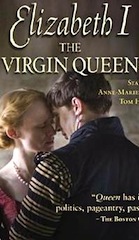
| |
Director: Coky Giedroyc, 2005
Filmed against a backdrop of some of Britain's most beautiful houses and landscapes,
this film explores the full sweep of Elizabeth's life: from her days of fear as a
sequestered princess and potential victim of her half-sister's spite, through her relationships
with Robert Dudley and William Cecil, her political maturation, triumph over the Spanish
Armada, and finally old age and her last, enigmatic relationship with her young protégé,
the Earl of Essex.
© WGBH
|
|
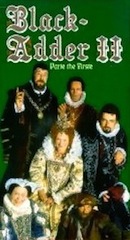
| |
Director: Mandie Fletcher, 1986
The second season of the British sitcom, Black Adder, introduces Lord Edmund Blackadder (Rowan Atkinson), a descendant of Plantagenet royalty and a conniving courtier of Elizabeth I. Blackadder's attempts to become king by marrying the always available virgin queen
are thwarted by the presence of other competitors. Meanwhile he offers dryly cynical
and insightful observations about those around him and the values and mores of the
Elizabethan Age.
© BBC
|
|
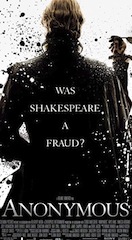
| |
Director: Roland Emmerich, 2011
This political thriller and costume drama is based on the controversial theory that
it was in fact Edward de Vere, 17th Earl of Oxford, who penned William Shakespeare's
plays and not the Bard himself. The film is set against the backdrop of the Essex
Rebellion and the final years of the reign of Queen Elizabeth. A compelling drama
likely to polarize viewers, it captures well the spirit of the age but is filled
with historical and literary inaccuracies.
© Columbia Pictures
|
|
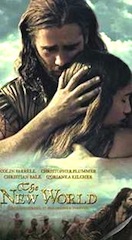
| |
Director: Terrence Malick, 2005
This visually stunning film is set amid the first encounter of English and indigenous North
American cultures during the founding of the Jamestown settlement in Virginia in 1607.
A unique interpretation of the classic tale of Pocahontas and her relationships with
adventurer John Smith and aristocrat John Rolfe that take her from the untouched beauty
of the North American wilderness to the center of high society in Stuart England.
© New Line Cinema
|
|
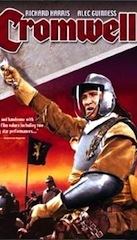
| |
Director: Ken Hughes, 1970
Disgusted with the religious policies of King Charles I, an English squire and Puritan
named Oliver Cromwell enters Parliament and, later, as a military commander and Lord
Protector ascends to heights of absolute power. This is a well rendered, albeit uneven,
film with many historical inaccuracies, but which nevertheless offers a compelling
portrayal of the turmoil of the English Civil War and the key figures involved. Richard Harris stars as Cromwell and Sir Alec
Guinness gives a brilliant performance as the insecure and aloof Charles I. © Sony Pictures
|
|
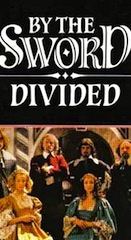
| |
Directors: Michael Custance and Brian Farnham, 1983
This BBC miniseries begins in 1649, two years after King Charles I and his followers
have been defeated by the opposing Roundheads and as Oliver Cromwell, the country's
new leader, has moved to center stage. The period from the aftermath of the English Civil War through the restoration of the Stuart monarchy is portrayed through the experiences of the Lacey family and their servants as the plot chronicles
the lives of a family divided by their loyalties to King and Parliament.
© WGBH
|
|
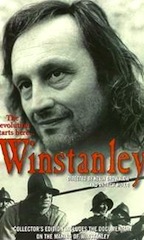
| |
Director: Kevin Brownlow, 1975
Gerrard Winstanley was the charismatic founder of a religious sect
called the "Diggers" that rejected private property and in 1649 set out to form a
commune outside of London and till the soil on the "common land". This film is not
overly dramatic and is a bit amateurish, but the filmmakers' desire to make it as
historically accurate as possible renders it an authentic, if understated,
portrayal of this important figure in the English Revolution.
© Image Entertainment
|
|
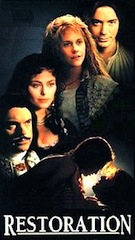
| |
Director: Michael Hoffman, 1995
An entertaining period piece about the rise, fall, and redemption of Robert Merivel, an
aspiring young London physician. Merivel is invited to join the royal court of Charles
II where he enjoys leisure, wealth, and romantic liaisons of someone well beyond his
social position. His fall from Charles' favor leads him from self-indulgence back to
his passion for medicine and a heroic desire to save his fellow Londoners during the
plague outbreak of 1665 and Great Fire of 1666. Based on the 1989 novel by Rose Tremain. © Miramax
|
|
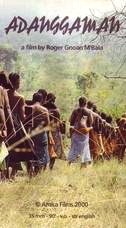
| |
Director: Roger Gnoan M'Bala, 2000
In West Africa during the late seventeenth century, King Adanggaman leads a war against
neighboring tribes, ordering his soldiers to torch enemy villages and take captives to
sell to European slave traders. Ossei, a strong-willed young man,
sets out to rescue his mother when their village is raided. This Ivoirian film addresses a rarely acknowledged though controversial aspect of the history of slavery: the active
role of Africans in supplying human cargo for the Atlantic slave
trade.
© New Yorker Films
|
|
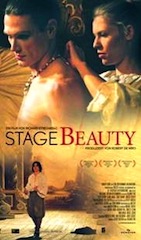
| |
Director: Richard Eyre, 2004
After years of Puritan stringency, England's theatres reopen and Charles II rescinds the
law allowing only male actors on public stages. The plot follows Ned Kynaston, an
actor who has made a living playing female roles, and Maria, his costume dresser and herself an
aspiring actress. An entertaining and well-acted story about the politics of Restoration
theatre. King Charles, the Earl of Clarendon, Nell Gwynn, and Samuel Pepys all make
appearances. Based loosely on events narrated in Pepys' diary. © Lions Gate
|
|
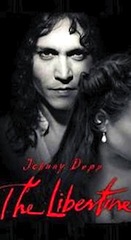
| |
Director: Lawrence Dunmore, 2005
This is the story of John Wilmot, the 2nd Earl of Rochester, a seventeenth-century English poet
who famously drank and debauched his way to an early grave but managed to earn posthumous
critical acclaim for his literary accomplishments. A dark and gritty view into the pomp and decadence of
Restoration high society as well as the literary genius and rakish wit of Wilmot. Based
on the 1994 play by Stephen Jeffreys.
© Miramax
|
|

